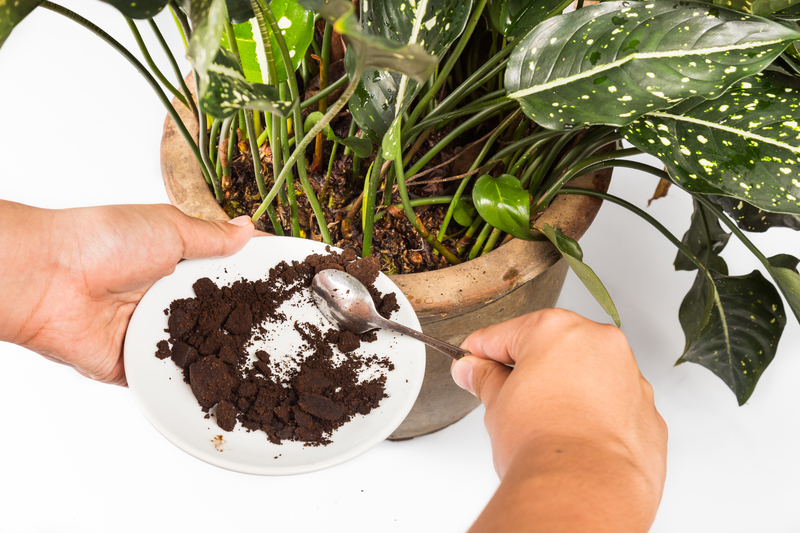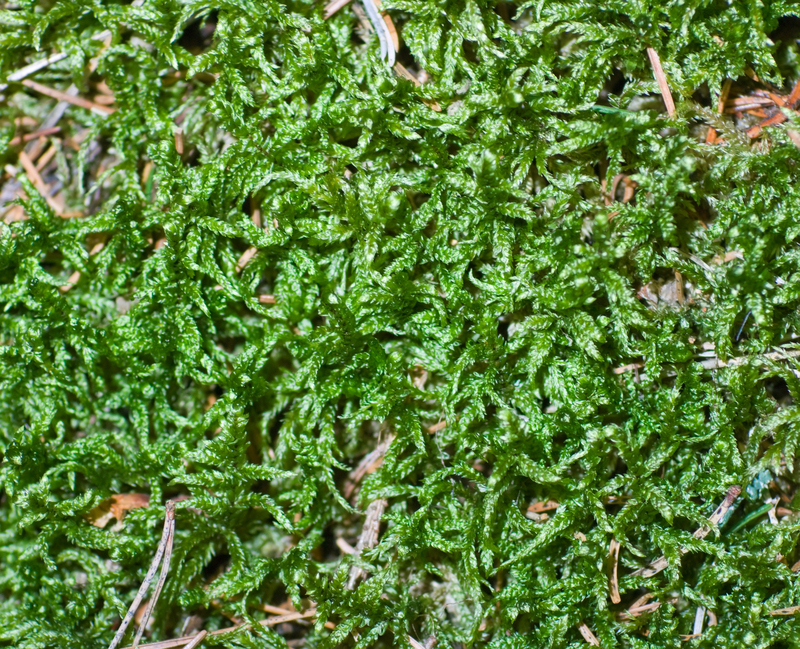Master Weed Control with These 3 Essential Tips
Posted on 10/06/2025
Master Weed Control with These 3 Essential Tips
Weed control is a crucial task for every gardener, landscaper, or property owner who values a pristine and productive landscape. Unchecked weeds not only compete with your cherished plants for nutrients, sunlight, and moisture, but they can also harbor pests and diseases, quickly turning your thriving garden into a tangled mess. If you're tired of fighting a never-ending war with these invasive plants, you're in the right place. In this comprehensive guide, we'll unlock the secrets to mastering weed control with three essential, actionable tips. Equip yourself with these strategies, and you'll dramatically reduce weed invasions, ensuring your lawn or garden remains healthy and attractive all year round.
Why Effective Weed Control Matters
Before diving into the practical tips, it's essential to understand why weed management is so important. Weeds can:
- Deprive crops and ornamental plants of vital nutrients, stunting their growth and reducing yields.
- Harbor pests and diseases, increasing the risk of infestations.
- Altar the ecosystem, outcompeting native flora and reducing biodiversity.
- Damage the appearance of gardens and landscapes, detracting from their beauty.
With these threats in mind, adopting effective weed management strategies becomes an absolute necessity.

Three Essential Tips to Master Weed Control
No matter your gardening experience, you can conquer weeds with the right combination of techniques. Here are the three core strategies that will transform your weed control approach and keep unwanted plants at bay:
1. Start with Healthy, Well-Prepared Soil
Prevention is better than cure--and this couldn't be truer for controlling weeds. When you cultivate soil that supports your chosen plants but not weeds, you put yourself at an advantage. Here's how:
- Remove weed roots and seeds: When tilling or turning soil, ensure you remove all roots, rhizomes, and weed seeds. Discarding these instead of leaving them in place is crucial, as even small fragments can regenerate.
- Enrich your garden soil: Integrate compost or well-rotted manure to boost soil health. Healthy soil encourages dense plant growth, which shades the ground and naturally discourages weed seed germination.
- Level and firm the soil: This minimizes crevices where weed seeds can settle and sprout. If you see exposed soil, lightly rake and pack it down, especially around flower beds and borders.
Pro Tip: If you're starting a new bed, consider using a weed barrier like landscape fabric before planting. This simple step can provide long-term weed suppression by blocking light needed for weed growth.
2. Mulching: Nature's Powerful Weed Control Tool
Mulch is more than just a decorative element--it's one of the most effective methods for weed prevention. Proper mulching can block sunlight, impede weed sprouting, and even improve soil moisture and health. There are several options for thorough weed control:
- Organic Mulch (such as shredded leaves, straw, wood chips, or bark): These mulch types add nutrients as they break down, promoting vigorous plant growth that competes with weeds. Spread a layer about 2-4 inches deep but keep it slightly away from plant stems to prevent rot.
- Inorganic Mulch (like gravel, stones, or rubber mulch): While these won't enrich your soil, they're incredibly effective in non-planting areas or around shrubs and trees, providing a physical barrier that suppresses almost all weed seeds.
- Living Mulch (groundcovers): Fast-growing groundcovers (e.g., creeping thyme, clover, or sedum) create a dense mat that shades the soil and crowd out invasive weeds.
The Science Behind Mulching: By blocking sunlight, mulch reduces weed seed germination. Additionally, mulch keeps soil conditions more consistent, creating an environment less hospitable for weeds but ideal for your desired plants.
3. Timely, Consistent Weed Removal
No matter how thorough your prevention, some weeds will always find a way in. That's why weed management isn't a one-time task but a practice of vigilance. Here's how you can stay ahead:
- Regularly scout your landscape: Make it a habit to walk your property weekly, inspecting beds, lawns, and pathways. Early detection ensures weeds are easier to manage and less likely to spread.
- Pull weeds when the soil is moist: After rain or watering, weeds (especially those with deep taproots) pull out more easily and with less soil disturbance.
- Use the right tools: For shallow-rooted weeds, a hand hoe or Japanese weeder is ideal. For deep-rooted invaders like dandelions, a narrow-bladed digging tool reduces re-growth risk by removing the entire root.
- Avoid letting weeds go to seed: Many weeds spread by seed, often producing thousands or even millions per plant. Removing them before flowering or seeding stage is the single best way to stop future infestations.
Pro Tip: For persistent perennial weeds, cutting off the foliage at soil level repeatedly weakens and eventually kills the plant since it cannot photosynthesize or store energy in its roots.
Additional Strategies for Advanced Weed Management
Once you master the basics, you may want to explore further weed control tips and options, especially in large plots or tough problem areas. Below are more ideas for comprehensive, eco-friendly weed management:
Cover Cropping
Use cover crops (like clover, rye, or buckwheat) in vegetable beds during the off-season. They enrich the soil, crowd out weeds, and reduce erosion. When it's time to plant, simply till or mow down the cover crop and plant through the residue.
Solarization
If you have a patch heavily infested with weeds, solarization (covering the area with clear plastic for 4-6 weeks during hot weather) can superheat the soil, killing weed seeds and roots naturally--without herbicides.
Smart Plant Selection and Spacing
Cramming beds with the right plant density can shade soil and dramatically reduce weed colonization. Choose vigorous, spreading varieties for groundcovers and border edges for optimum weed suppression.
Eco-Friendly Weed Control Alternatives
If you prefer to avoid chemical herbicides in your garden or landscape, there are several organic and natural weed control methods worth trying:
- Boiling water: Effective for cracks in pathways or driveways but not recommended around valuable plants since it kills anything it touches.
- Vinegar or citrus-based sprays: Contact with leaves causes rapid drying and browning but usually only works on small annual weeds, not deep-rooted perennials.
- Flame weeders: Pass a flame quickly over young weeds to burst their cells (never use in dry areas or near flammable material).
- Corn gluten meal: Acts as a pre-emergent, preventing many seeds (including weeds) from sprouting if applied at the right time.
Remember: always read labels, test carefully in small areas, and avoid harm to desirable vegetation.
How to Maintain a Weed-Free Garden: Top Prevention Habits
Consistency is the ultimate key to effective weed control. Adopt these habits for the best long-term results:
- Fertilize carefully: Over-fertilized lawns encourage weed growth. Use fertilizer only as your specific plants require.
- Water efficiently: Target your watering directly at the roots of your plants rather than sprinkling the whole area. Drip irrigation minimizes water access for weeds.
- Regularly add mulch or compost: As old mulch breaks down, top up with fresh organic materials to renew your weed-blocking layer.
- Sharpen and clean tools: Blunt tools can leave weed roots behind, and dirty tools may spread weed seeds from one area to another.

Common Weed Types and Their Control Strategies
Knowing your enemy is half the battle. Here are common weeds and specific strategies for their control:
- Dandelions: Tackle with a taproot weeder tool, ensuring the entire root is removed.
- Crabgrass: Mulch garden beds and mow lawns to the right height. Apply pre-emergent herbicides when needed.
- Bindweed: Persistent pulling paired with heavy mulching slowly depletes the plant's reserves.
- Purslane and Chickweed: Hand-pull before seed production. Use thick mulch to stop light from reaching these low-growing weeds.
Tip: Know when to call in professional help
If an invasive species takes hold or chemicals are needed for safety-sensitive areas, don't hesitate to consult a certified weed control professional for advanced solutions.
Wrapping Up: Your Weed Control Master Plan
With these three key tips--healthy soil preparation, strategic mulching, and ongoing vigilance for timely weed removal--you're ready to master weed control in gardens, lawns, or landscapes of any size. By combining these essential strategies, you'll outsmart unwanted invaders, foster beautiful plants, and promote a sustainable environment for years to come.
Ready to take action? Start with your soil, experiment with the best mulch for your setting, and set a routine for weeding--then watch your landscape transform! For more advanced weed control tips and tailored advice, consult your local extension services or garden center, and don't forget: a weed-free garden is just a few smart steps away.
Happy gardening--and may your blooms always outshine the weeds!
Latest Posts
Creating a Zen Oasis for Tranquil Outdoor Retreats
Creating a Dog-Friendly Garden: Tips and Tricks
Mastering the Art of Orchid Care



